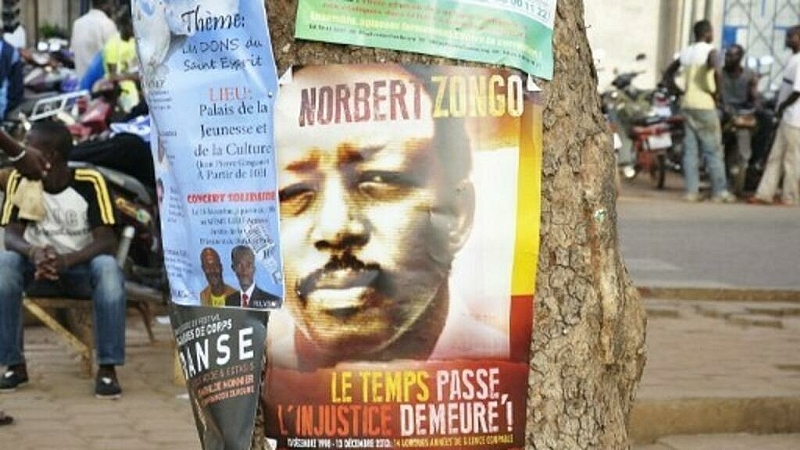
[ad_1]
In the last stage of a long legal process, France paved the way for the extradition of François Compaoré, the brother of the former president of Burkina Faso, wanted for the murder of a prominent journalist. Fearing that he would not get a fair trial, his legal team took the case to the European Court of Human Rights.
The Council of State, France’s highest court for matters involving public administration, dismissed Compaoré’s lawyers appeal against an earlier extradition decision, saying there was no constitutional or other reason to overturn the decision.
According to RFI journalists who saw the court press release, the Burkinabè justice had provided sufficient guarantees that Compaoré would be detained in decent and safe conditions and would not be subjected to torture or inhuman treatment.
Compaoré is the younger brother of Blaise Compaoré, who was ousted in a popular uprising in 2014 – after 27 years in power that began with a coup d’état – and went into exile in Côte d’Ivoire.
The murdered journalist was Norbert Zongo, editor of the weekly The Independent and an investigative journalist. He was investigating the death of David Ouedraogo, François Compaoré’s driver at the time.
His charred body was found on December 13, 1998, with three colleagues killed in a burned-out car on a road south of the capital Ouagadougou.
Independent investigation
Initially, only one suspect, Marcel Kafando, a member of the presidential guard, was charged with the murder and then acquitted.
Burkina Faso closed the investigation after releasing the guard, but justice reopened the case after the dismissal of Blaise Compaoré.
An independent investigation ordered by the next government concluded that the assassination was linked to the professional activities of the journalist who used to uncover irregularities in the Compaoré regime.
Six suspects, all members of the presidential guard, have been identified by independent investigators and three have been charged.
Burkinabè justice suspects François Compaoré of having ordered the coup, although he has so far not been charged with any crime.
French police arrested Compaoré at Charles de Gaulle airport in Paris in October 2017 following an international arrest warrant issued by his country’s government. In 2020, Burkina Faso made an agreement with France for his extradition.
Relief, satisfaction
Burkina Faso hailed the decision on Friday as a “victory”.
“We are convinced of the merits of our request,” declared Ousseni Tamboura, Minister of Communication and government spokesperson.
The support network Cell Norbert Zongo for investigative journalism in West Africa (Cenozo) is also relieved.
“We have been fighting for the truth for nearly 23 years”, Boureima Ouedraogo, editor-in-chief of Journalist and secretary general of the Cénozo organization told reporters.
“François Compaoré failed to convince French justice, either by denying his involvement in Zongo’s murder or by claiming that he would face threats when he returned home to defend himself. For us, it was is a great satisfaction. “
Compaoré’s lawyers said on Friday that their client was ready to face the justice system in his country “with dignity, honor and responsibility”.
But they added in a statement sent to AFP that he believed that the extradition was politically motivated, and that the council had not taken into account the risk of torture, inhuman treatment and unfair trial awaiting him.
“He would certainly be exposed to such risks if handed over to Burkina Faso,” they said.
Compaoré appealed to the European Court of Human Rights in hopes of stopping the extradition, they said.
(with AFP)
Source link